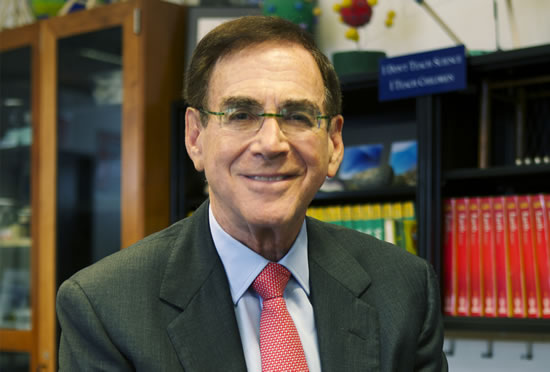GUEST EDITORIAL
To Change Our World, We Must Know What We’re Fighting For
By Chancellor Stephen Spahn, Dwight School

Chancellor Stephen Spahn, Dwight School
This current era of nationalism is not our finest hour. Increasingly divided and divisive, our world has retreated into shadowy days of yore marked by increased fear and violence, revoked freedoms, and the propagation of untruths.
Our current state of affairs harkens back to one of the darkest times in history when Nazism and fascism rose up from these very same ills to swallow millions during World War II. During its aftermath, a French educator heading the International School of Geneva, Marie-Thérèse Maurette, envisioned “a pedagogy of peace.” In her 1948 UNESCO handbook — Educational Techniques for Peace. Do They Exist? —she set the stage, acknowledging the enormity of such a pursuit rooted in internationalism and designed to teach respect and acceptance of others:
“To educate children so that they may become members of the human race as a whole, and not merely members of separate nations, is an immense task — an undertaking so vast that the old established churches have failed; and many people are prepared to resign themselves to the old saying:“Homo homini lupus.”
Man is wolf to man.
Madame Maurette’s principles served as the foundation for the establishment of the International Baccalaureate (IB) in Geneva 20 years later. Designed to bridge national biases and boundaries, the academically rigorous IB curriculum from preschool through grade 12 “aims to develop inquiring, knowledgeable, and caring young people who help to create a better and more peaceful world through intercultural understanding and respect.”
When I first became a young headmaster at Dwight School in New York City in the late 1960s, the world was also in turmoil and it became evident that our traditional educational system was ill-equipped to evolve and respond as quickly as young people needed. I was a firm believer in the power of education to change lives, and of the International Baccalaureate in particular as an inclusive framework for fostering personal excellence on a global scale. I chose to champion the IB; its emphasis on educating internationally minded critical thinkers was, and continues to be, an imperative. The IB encourages learning in global contexts, respect for people whose backgrounds and perspectives differ — and in the words of Madame Maurette — educating children so that they may become members of the human race as a whole.
Our human race is at great risk because our freedom is at risk. When you know what you’re fighting for — “humanity first” — you can rally against “America first” rhetoric, tamp down autocracy, curb anti-immigration and anti-this, anti-that impulses — you can restrain the wolf. An international education is a most powerful weapon in this war we must win.
I have served as Chancellor of Dwight for more than 50 years and have seen generations of students graduate, taking with them core IB values to help make the world a better place. With schools in New York, London, Seoul, Shanghai, Dubai, and online, our students meet and collaborate across campuses and international time zones. Intuitively, they find common ground and are enthusiastic to learn about cultural differences. They team up to develop solutions to global problems. They are not afraid to find a better way, to use their voices to speak out against injustice, and to demand a better world than the one they have inherited for the human race as a whole.
Our nation and world can learn a great deal from students who know what they’re fighting for. #
Dr. Stephen Spahn is the Chancellor of Dwight School.
